
We will shut Hormuz Strait!
The editorial of Siasat Rooz deals with different options of Iran to counter the U.S. oil sanction, including shutting down Hormuz Strait which will create severe disturbance in the global energy market.
The editorial starts with options Iran has to confront the U.S. oil sanctions, in case these sanctions are implemented. Iran is one of the biggest producers of oil in the world; many countries like India, China, South Korea and Japan provide fuel for their factories and automobiles from Iran’s oil. As a result, it is not that easy to replace Iran in the oil global market. The world’s oil economy, the editorial continues, will certainly face difficulties without Iran’s oil. Even Americans who plan to sanction Iran’s oil know this very well. Even Iran’s exiting OPEC can affect oil export to other countries; when OPEC cannot defend its member’s rights, staying in this organization will be useless.
Then the editorial goes on to say that the most significant factor that Iran can use to counter oil sanctions is the country’s geographical position. The Gulf, Hormuz Strait and Oman Sea are routes for oil tankers used for exporting oil from the countries of the Gulf coast. Hormuz Strait, both economically and militarily, is one of the strategic waterways of the world. Iran’s complete monitoring over this strait and its ownership can be a privilege.
Iranian president Hassan Rouhani, who was talking among Iranians residing in Switzerland, sent a strong message to the U.S. in this regard. Rouhani decisively and clearly announced that if Iran’s oil is not exported, then other countries of the region won’t export oil either. Iran’s most important option is shutting down Hormuz Strait.
The editorial concludes: if the U.S. makes sanctions of Iran’s oil operative and buyers stop purchasing Iran’s oil out of fear of the U.S., shutting down Hormuz Strait will create severe disturbance in the global energy market.
An editorial in Siasat Rooz on July 4, 2018
The threatening position is not useful!
The editorial of Setareh Sobh criticizes Iranian President Hassan Rouhani for taking a threatening position in his recent trip to Europe, in which he threatened if Iran is prevented from exporting oil due to the U.S. oil sanctions, no countries in the region will be able to do so.
According to the editorialist, Rouhani’s trip to Switzerland and meeting with this country’s officials convey messages at the time when the nuclear deal is in critical conditions and Americans are openly defying Iran. Before Rouhani’s meeting with Swiss officials, news agencies had announced that it was more than a simple meeting among Iranian president and European officials; it was a confrontation between Rouhani and Trump.
The editorial continues: it was expected that Rouhani’s trip would include talks with positive feedbacks, at this time when the U.S. enmities with Iran have significantly increased. The method Rouhani used in his talks wasn’t negotiating from the position of power but talking from threatening position.
The editorial adds that in this trip, Rouhani must have shown that Iran would still be committed to its obligations in the nuclear deal, despite Trump’s pulling out of this international treaty. Iranian president must have shown that Iran would stick to dialogue and interaction despite implementation of U.S. sanctions against Iran.
The editorial further says that Rouhani must have reassured the Europeans that despite pressures, Iran would be ready to pay the necessary price for preserving the nuclear deal. As such, the editorialist says, it is not clear why Rouhani took such a threatening position in his negotiations. The question is: will the U.S. retreat because of Rouhani’s threats? The editorialist believes that no such things will happen, and this threatening position will only give new excuses to the U.S. What is more, such threats will make Europeans doubt their own position as to continuing the nuclear deal with Iran.
An editorial in Setareh Sobh on July 4, 2018
Death to what?
This editorial, penned by a reformist activist, zeroes in on the political slogan of “death to Palestine” chanted by Iranian people during the recent unrests in the country.
The editorialist holds that Iranians’ protests in the past few months, regardless of their nature, could not be organized inside the country as the organizers would easily be identified and arrested. The editorialist then focuses on the slogan “death to Palestine” which people chanted during demonstrations in Tehran’s Grand Bazaar, calling it an outcome of an unorganized movement prone to accepting any accidental slogan which can be coined by someone and repeated by others. Evidently, some protesters denounce Iran’s policy towards Palestine, yet the crystallization of such dissatisfaction in the slogan “death to Palestine” cannot be a conscious act. Elaborating on his topic, the editorialist tries to find a meaning for this slogan. If by Palestine, the protesters meant the Palestinian self-rule government or Fatah party, Iran has had cold relations with them. Moreover, Palestine in this slogan cannot mean Hamas, since this group, too, distanced itself from Iran’s establishment during Syria crisis. Finally, if Iran’s aid to Palestine is the point of that criticism, then it is the Iranian regime that should be slammed, not the country receiving the aid.
All things considered, the editorialist finds the slogan immoral, saying people’s criticism should be centered on what their country is suffering from, namely, mismanagement, destruction of resources and rent-seeking.
An editorial in Mostaghel Daily on July 3, 2018
Neighboring country blamed for drought in Iran
The editorial of Ghanoon daily deals with the issue of drought in Iran and Turkey’s share in it by building dams.
The editorial opens with remarks of the head of Iran’s Passive Defense Organization who recently accused foreigners of stealing Iran’s clouds, as well as Israel and a neighboring country making clouds entering Iran infertile. Even though an official from Iran’s Meteorological Organization dismissed these claims, in days when Iran is struggling with drought and more than 34 million Iranians are suffering from water crisis, such remarks will have consequences in the society, making people distrust the establishment. People will not believe such lame excuses as stealing clouds and snow, as they don’t have any scientific basis.
The editorial then claims that Israel has a role in the crisis of water in Iran; Israelis have invested in Turkey’s big water project called Great Anatoli Project (GAP). This project is underway with 80 contractors, 60 of which belong to Israel. According to the editorial, GAP, by building large and medium dams in southern Turkey, is the “prime suspect” in the issue of dust particles in Iran. What is more, as a consequence of implementing GAP, there has been a drought in Syria and Iraq, and millions of acres of agricultural lands have become barren in these countries.
The editorial concludes: even though traces of Israeli’s investors in this project is a waking call to Iranian officials, Iran’s diplomatic system has shown no clear reaction to Turkey’s project. While Iran is becoming increasingly thirstier, Iranian officials talk of projects of impregnating clouds and stealing clouds and snow, instead of solving the problems, changing the process of management of water resources in the country, stopping destructive water projects and filing against Turkey in the international community for implementing dam-building projects.
An editorial in Ghanoon Daily on July 3, 2018

Iran, Nigeria to promote scientific cooperation
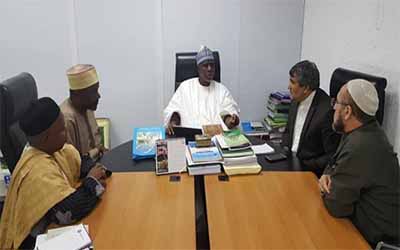
Cultural consultant of Islamic Republic of Iran Mahmoud Azimi Nasrabadi met with the executive manager of Nigeria’s Education Ministry Abubakr Adamou Rashid. In this meeting, Abubakr Adamou Rashid pointed out to remarkable potentials of Nigeria and Iran, announcing readiness of ministries to have academic and scientific cooperations. Azimi Nasrabadi too announced readiness to develop proper scientific and academic relations between the two countries, saying establishing Persian language course, creating Iran’s Chamber, a founding agency of Iranian universities in Nigeria, joint scientific researches, offering study opportunities, and exchanging professors and students are some grounds for mutual cooperation.
Moghym
Small, medium companies can be used for economic interactions with Europe
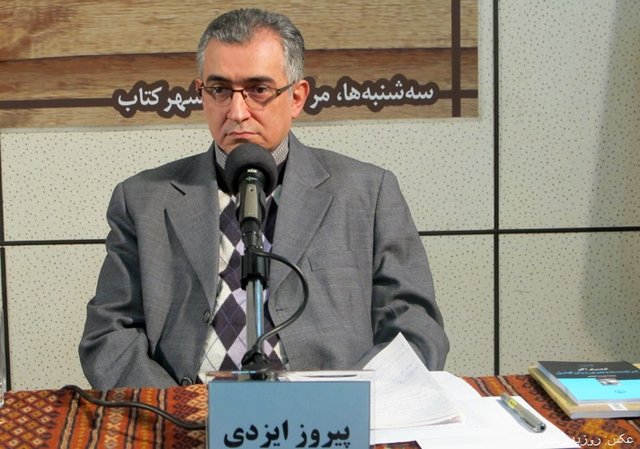
Pointing out to Iranian President Hassan Rouhani’s trip to Switzerland and Austria heading a political and economic delegation, Pirouz Izadi, expert in European affairs, urged that Switzerland and Austria haven’t taken harsh stance against Iran, and Iran can open channels through these two countries to preserve current economic trades with Europe to some extent. He added that in this trip, Rouhani is after finding solutions to preserve economic transactions between Iran and Europe and sidestep the U.S. secondary sanctions.
Izadi said even though small and medium European companies might not be able to meet all the requirements of Iran in trades and investment, cooperation with these European companies can be a solution for preserving the nuclear deal.
ISNA
Toughest punishment for economic disruptors
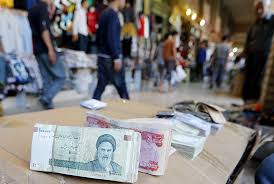
The first deputy to Iran’s attorney general Mohammad Mossadeq said economic disruptors will be sentenced to most severe punishments – from 20 years of imprisonment to execution. In response to the question as to which entity will confront the violators who have received governmental foreign currency, he said there are laws regarding economic disruption, and the lawmakers have stipulated most severe punishments for economic disruptors.
Asr Iran
Lawmakers’ automobiles stolen
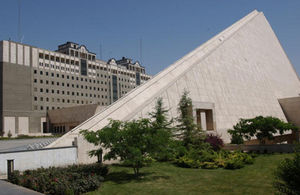
In past year, 20 automobiles of Iranian lawmakers with labels of Iran’s parliament have been stolen. It is said that since these cars have hologram labels of the parliament, they can pass the main gates of the parliament’s building.
Mashregh
Iran’s non-oil export to Iraq increases 13%
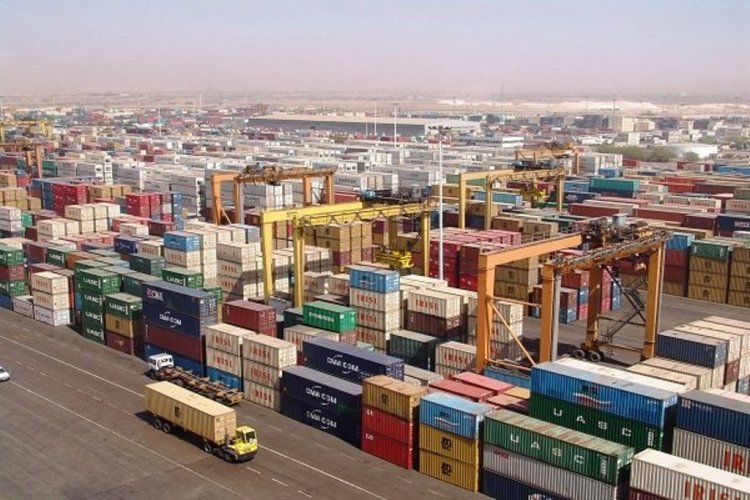
According to Nasser Behzad, Iranian trade advisor in Iraq, Iran’s non-oil export to Iraq has increased 13%. He added Iran’s share in Iraq’s market is roughly 15% now, making Iraq the first target of Iranian exported products. According to Behzad, most of the exported goods consist of plastic artifacts, industrial products, agricultural products, dairies, construction products, household cleaning products, pastries, chocolates, tomato paste, and auto parts.
IRNA
IAEA inspectors visit, take a sample from Science and Technology University
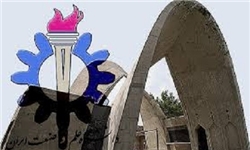
Inspectors of International Atomic Energy Agency (IAEA), in an unusual step, visited Faculty of Power Engineering in Science and Technology University, taking samples from there. U.S. ambassador to UN Niki Haley had previously asked IAEA to inspect military sites and Iranian universities and take samples, in addition to current severe inspections. Professors’ Basij in Science and Technology University issued a statement in reaction to this, saying that if professors, students, and staff of the university had become aware of such an “invasive measure,” they would have certainly prevented it.
Fars news agency
UAE freezes accounts of 9 Iranian individuals and entities

UAE government issued an order on Tuesday asking for identification of bank accounts of 9 Iranian individuals and entities and seizing their assets. These people and entities were added to the list of supporters of terrorism by UAE government in mid-spring. UAE government announced that they have been designated to the terrorist list for having a relationship with Iran’s Revolutionary Guards (IRGC). This measure was taken after the U.S. announced designating 9 Iranian individuals and companies active in Quds Force’s foreign currency network to the sanctions list.
Parsine
Appeal for reconsideration of judicial sentences against five students arrested in unrests

Amir Raeesian, the lawyer of five students that arrested in the protests of December 2017, said he had appealed for a reconsideration of sentences issued against his clients. He added even though he represented these students in the court, the judge didn’t allow him to defend his clients; therefore, he intends to present his defenses in the appeal court.
Iran
Parliament: Iran’s level of cooperation with IAEA must be modified

Iranian lawmakers issued a statement urging the government to truly follow people’s rights and enforce the proportionate laws with regard to the nuclear deal. They have also asked the government to change the level of cooperation with International Atomic Energy Agency (IAEA) in accordance with new conditions.
Vatan Emrooz
Lawmakers’ letter to Rouhani and Sadegh Larijani: Improve economic conditions
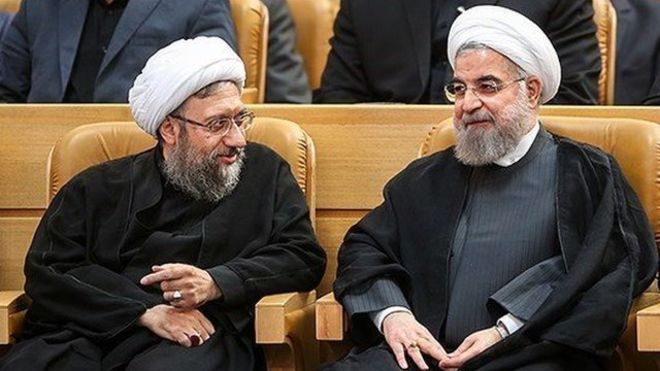
A number of Iranian lawmakers wrote a letter to Iranian President Hassan Rouhani and Chief Justice Sadegh Larijani, calling for enforcing laws to improve economic conditions and adequate judicial supervisions. Hossein Naqavi Hosseini, the spokesperson of hardline Velaee Fraction in the parliament, said this letter has 12 paragraphs and is signed by the majority of MPs. In this letter, the lawmakers emphasized establishing economic security, preventing hoarding, fighting economic corruption, and preparing the grounds for making production prosperous.
Vatan Emrooz
Khamenei: Enemies aim at creating a gap between establishment and people

Iranian Supreme Leader Ali Khamenei, talking among the graduates of Imam Hossein University, urged that components of national authority must be strengthened, and “no sign of wavering or surrendering to the enemy must be shown.” Khamenei added that the aim of current economic pressures is to make people miserable, thus creating a gap between the establishment and people.
In the same ceremony, IRGC Commander Brigadier General Mohammad Ali Jafari said Iranian people are on the verge of a “historical experience which will result in a new era of distrusting the U.S. and concentration of powers and energies to confront different conspiracies.”
Pars Today and Fars news agency
Military official: Israel is stealing Iran’s clouds
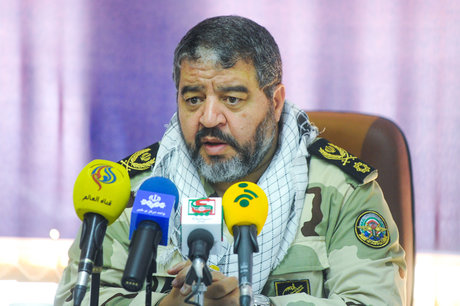
Brigadier General Gholamreza Jalali, a senior military official and head of Iran’s Passive Defense Organization, called climate changes in Iran “suspicious of foreign interferences.” He said that “joint teams of Israel and one of the neighboring countries make clouds entering Iran infertile,” adding that Iran is also “facing the issue of stealing clouds and stealing snow.”
These remarks are made at the time when a new round of protests against the shortage of water in different cities of Iran has started. Shortage of water in Khorramshahr has resulted in unprecedented protest gathering in this city.
BBC Persian and ISNA
Rouhani sends an envoy to Qom
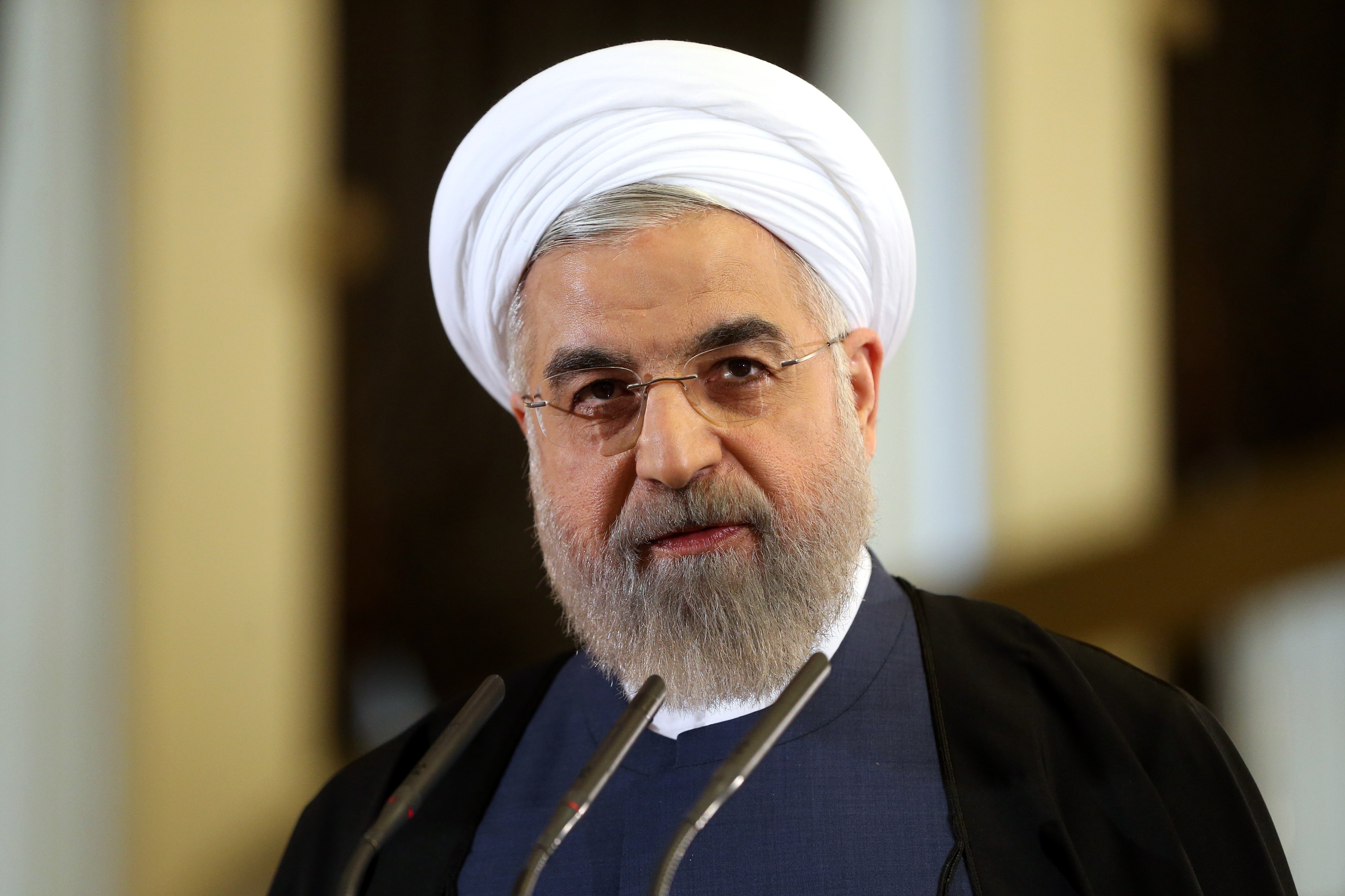
In an attempt to gain the support of Shia’s clerics in Qom, President’s Chief of Staff Mahmoud Vaezi went to this religious city to meet with grand ayatollahs and talk about current issues of the country with them. In their meeting with Vaezi, these ayatollahs all urged the government to address the issue of people’s livelihood and counter the problem of high prices, asking the government to keep the people satisfied.
Vaezi emphasized that the government is doing its best to prevent the impact of the U.S. pressures on people, adding that “unfortunately some groups are after settling accounts with the government; however, it is only logical to set aside all differences when the enemy has targeted the totality of the regime.”
Shargh
Foreign ministry denies receiving EU’s proposed package in backing JCPOA
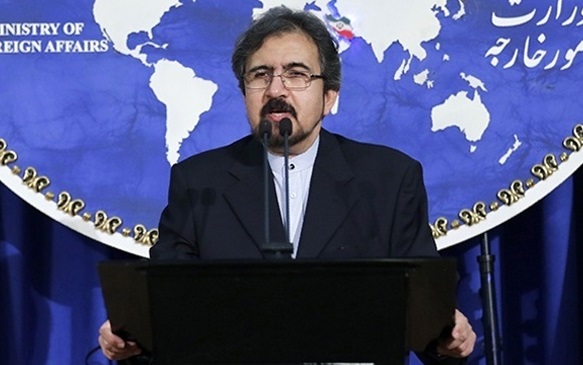
Following the publication of news as to European Union offering its proposed package to Iran in support of JCPOA by Federica Mogherini, Iranian foreign ministry’s spokesperson Bahram Ghassemi denied receiving it. He said no package has been offered to Iran yet, and European countries are doing the final consultation in this regard.
Entekhab
Ahmadinejad claims to have solutions to create stability in the market
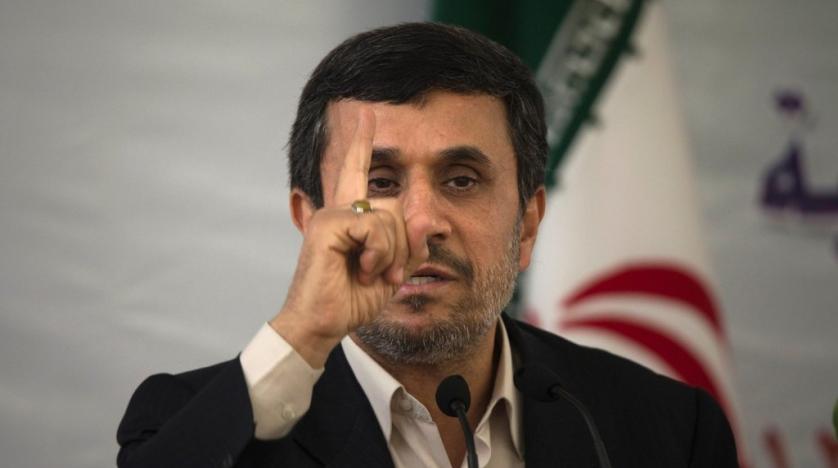
Former president Mahmoud Ahmadinejad in whose presidency Iran faced 754% increase in the gold market has claimed to be able to save the country’s economy with “three or four moves.” Saying that he could create stability in the foreign currency market, he urged that “Iranian people deserve better than this.” Ahmadinejad asked the Iranian officials to listen to people and stop calling these problems “psychological warfare.”
Fararu
Jahangiri warns those after interfering with Iran’s oil market
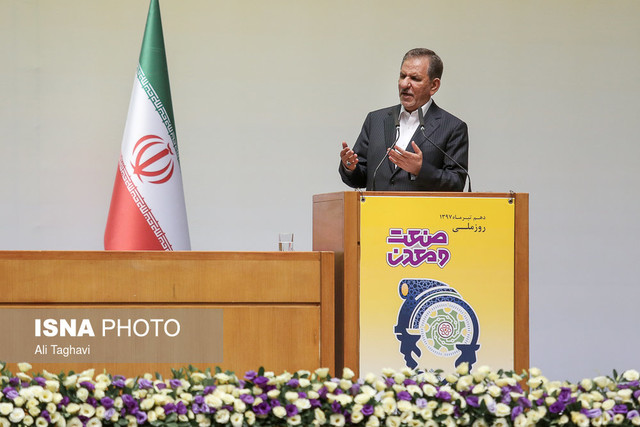
Iranian First Vice President Eshaq Jahangiri said any country that wants to replace Iran in the oil market “has committed treason against Iran and the international community.” He urged that Iran will try to “defeat the U.S. oil policy,” adding that Iran will sell oil as much as it needs to.
Jahangiri pointed out that the U.S. first goal is to prevent Iran from selling oil, asking for the participation of private sector in buying and exporting Iran’s oil. He said that Iran’s crude oil will be offered in Iran’s domestic stock market so that the private sector can transparently buy and export it.
ISNA
Seif: Central Bank not to increase bank interest rates
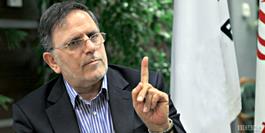
Governor of Iranian Central Bank Valiollah Seif said the Central Bank doesn’t intend to increase bank interest rates, and those banks that will unusually increase their interest rates will be confronted. He added that the foreign currency needed for essential products and raw materials for factories will be provided from foreign currency resources gained from exporting petrochemical and steel products.
Parliament’s news agency
Ali Larijani emphasizes the significance of National Security Commission
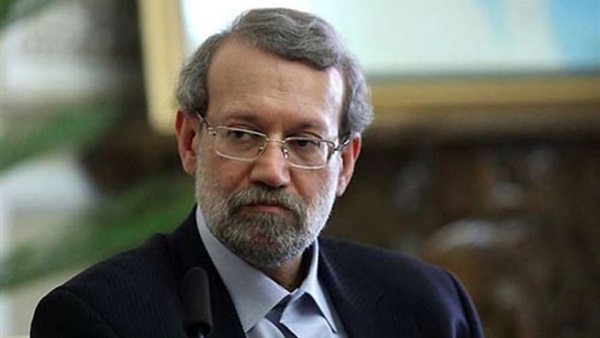
Speaker of Iranian Parliament Ali Larijani took part in National Security and Foreign Policy Commission in the parliament, underscoring the importance of this commission particularly under the current conditions.
ISNA
Lawmaker: Exact number of arrested students not clear

Fatemeh Saeedi, the member of reformist Omid Fraction in the parliament, said the number of students who are under arrest isn’t clear yet; even though it was announced that five people are under arrest, it seems that there are more. She said when someone born in 1996 is sentenced to 8 years of imprisonment, it will affect this person’s life, and given the fact that these people are inexperienced and repentant, their sentences can be reviewed.
Arman Emrooz
Lawmaker hopes for a cabinet reshuffle
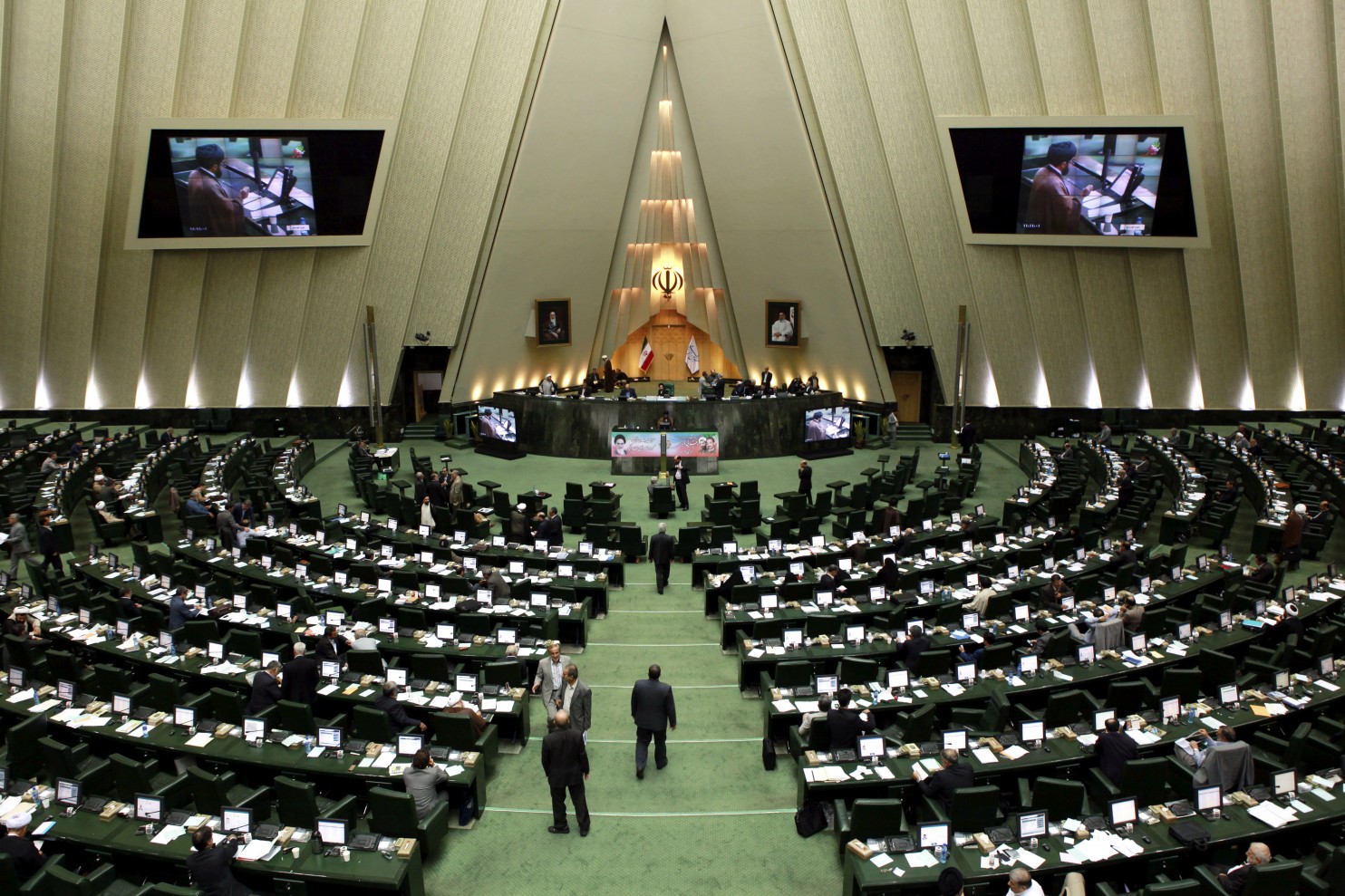
Head of Youth Fraction in Parliament Farid Mousavi said, “we hope to see cabinet reshuffle soon so that we can succeed in the economic war.” Urging that today the conditions are more complicated than during the 8-year war, he said today “we are in war conditions, which more than any time require the energy of youths.”
Young Journalists club
Zarif, Lavrov talk about Caspian Sea and Syria
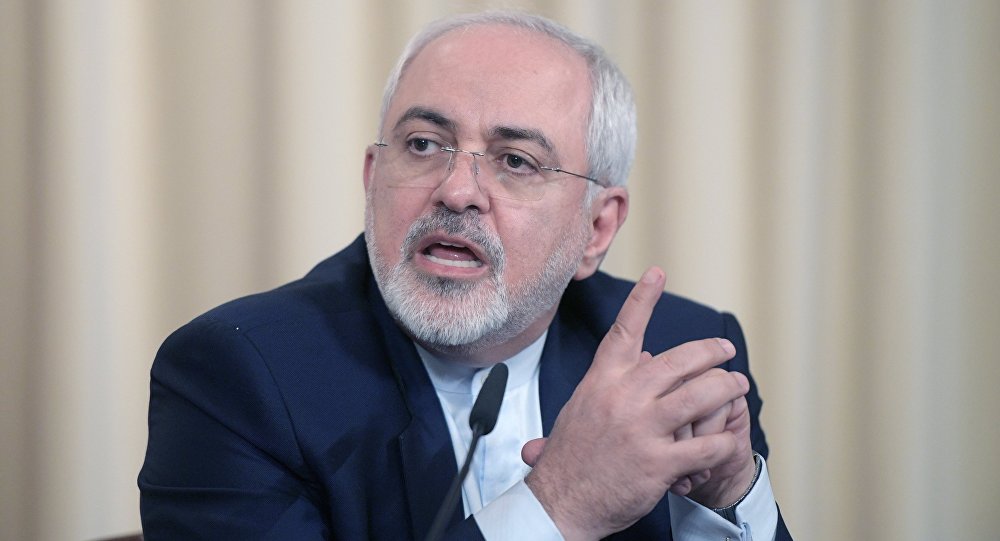
Foreign ministers of Iran and Russia talked on the phone about important regional issues including latest developments in Syria and issues regarding the Caspian Sea. Mohammad Javad Zarif and Sergei Lavrov discussed the latest on resolving the Syrian crisis, as well as the issues related to the Caspian Sea about which Iran, Russia and other coastal countries of the Caspian Sea have been negotiating for years.
Fars news agency
Bartering oil with essential goods as a solution to counter sanctions
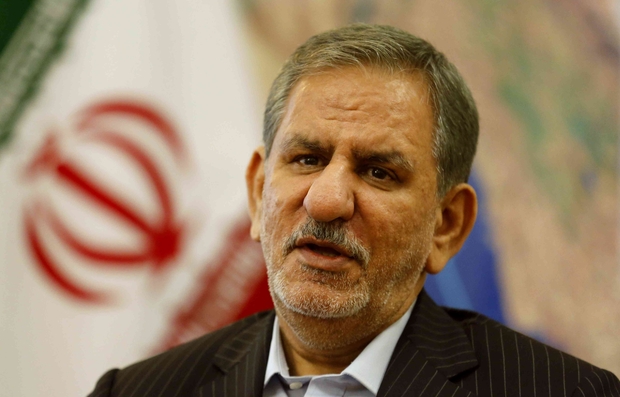
First Vice President Eshaq Jahangiri, in the meeting of Resistance Economy Headquarter, considered bartering oil with essential goods as one of the solutions to counter the U.S. sanctions. Jahangiri called for the formation of a workgroup called “committee for bartering” with a membership of ministries of oil; industry, mine and trade; foreign affairs; economy; agricultural jihad; and planning and budget organization. He said this workgroup will be assigned plan and determine the mechanism for bartering oil with essential goods.
Radio Farda
A lawmaker on the bill for providing women’s security
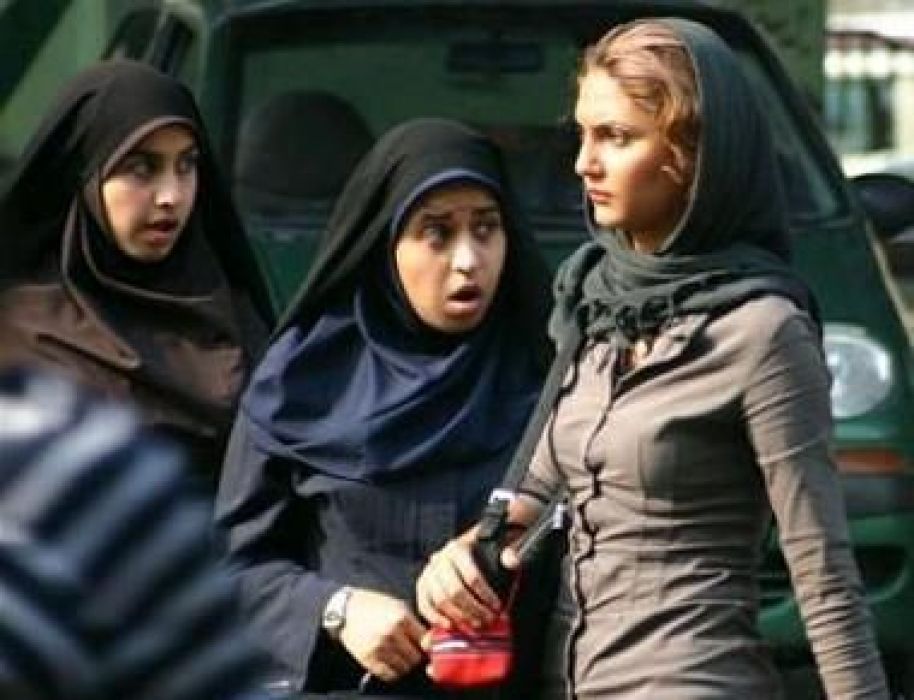
According to Parvaneh Salahshoor, head of Women Fraction in Parliament, the bill for providing women’s security is said to be given to Iran’s supreme leader Ali Khamenei. Sending a bill to be viewed by the supreme leader is an unprecedented move. It is unlikely that this bill would pass in the parliament, as there is already a law for those girls who want to marry without their fathers’ permission.
Shahrvand
Zibakalam: Tell Rouhani people are not a bunch of kids!
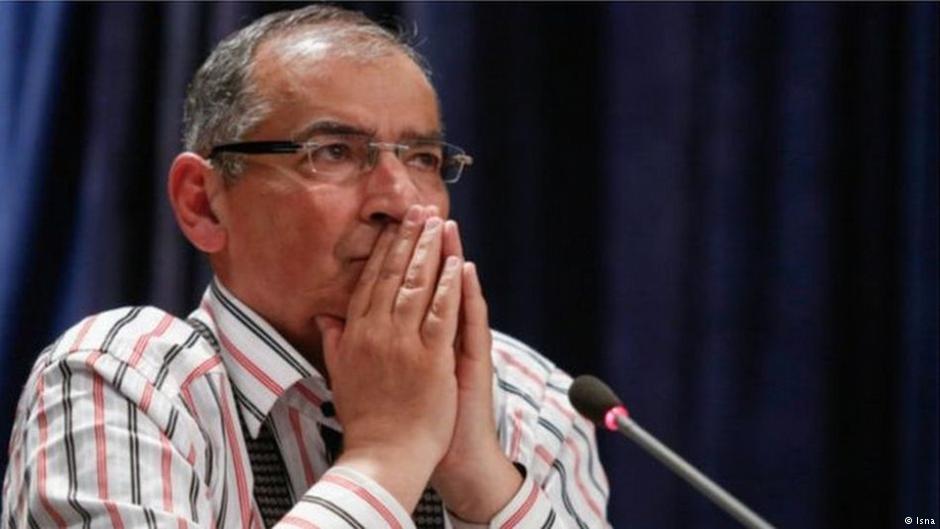
In a tweet, reformist academic Sadegh Zibakalam wrote: “I don’t know why no one from people closes Rouhani dares to tell ‘the boss’ that people who sit to listen to you are not a bunch of kids to believe your promising ‘speech therapy’. They are mature people, and you’re not dealing with real problems and issues of the country – and chanting shallow slogans instead – will only make them angrier.”
Following recent popular unrests in all cities of Iran, Iranian president Hassan Rouhani addressed Iranian people asking them to help the government to overcome the economic crisis which exists in Iran.
Twitter
Military official: Iran stands on its own feet
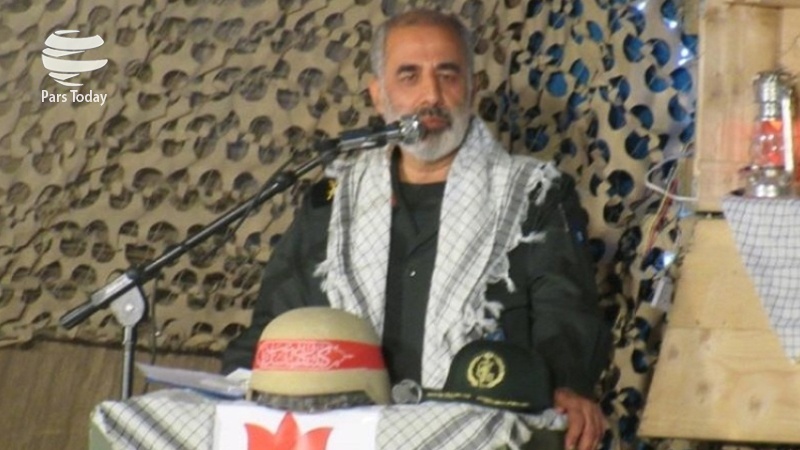
Deputy to General Staff of Armed Forces Brigadier General Reza Abdullahi claimed that during past 40 years, the Islamic Republic of Iran has been able to stand on its own feet with the slogan of neither the West nor the East and preserving its own independence. Abdullahi pointed out to economic and livelihood issues within the country, saying these issues can be resolved only if “our look is not towards outside and we rely on our domestic production and power.”
Pars today
Tehran City Council member on Rouhani’s poor performance
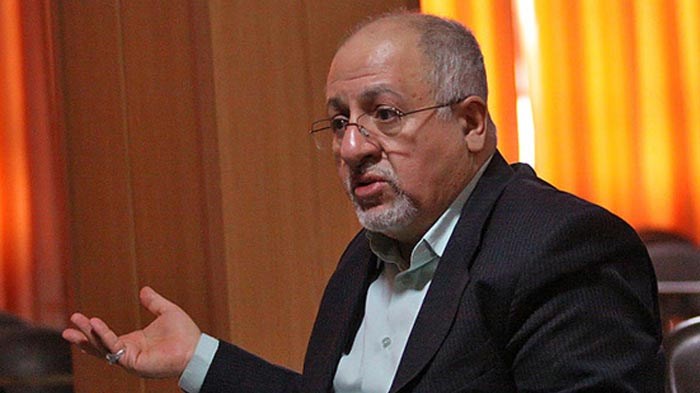
Mohammad Javad Haghshenas, Tehran City Council member, said Hassan Rouhani became Iran’s president with people’s votes, and “we certainly have the right to complain that he hasn’t had a good performance.” He stated that “we are in worrying conditions,” adding that it has been several days that Tehran too has been involved in popular protests at a place which must be the heart of the economy. “Economic, social, and cultural condition in our society is not good and its consequences are revealing themselves,” urged Tehran City Council member.
Negaam
Abadan Friday mass prayer leader: people’s demands are legitimate
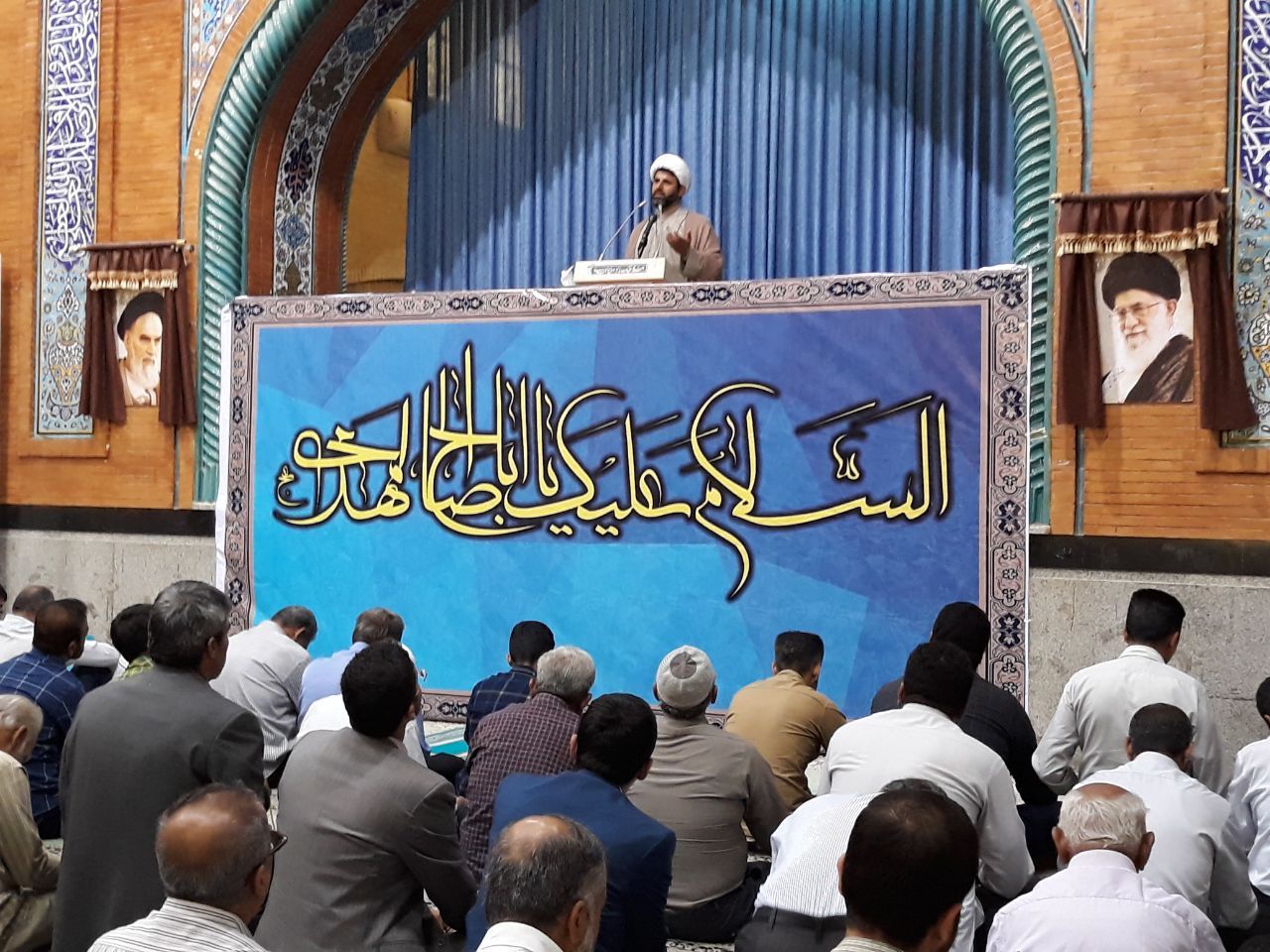
Pointing out to recent gatherings in Tehran Grand Bazar in protest against currency rate and protests in Abadan and Khorramshahr regarding the shortage of drinkable water, Abadan Friday mass prayer leader urged that there must be a difference between “legitimate demands and the enemies’ demonizing.” He emphasized that the issue of drinkable water in Abadan and Khorramshahr is very serious and must be resolved for good.
Residents of Abadan and Khorramshahr have been dealing seriously with the issue of drinkable water, and people have had to stand in long lines in front of water tankers just to get some drinkable water. In protests against this situation, people have repeatedly held gatherings and chanted slogans against the officials and authorities.
IRIB
